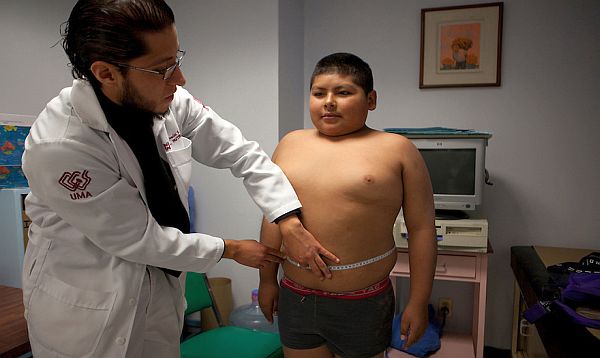Guadalajara - Mexico, a country which faces critical obesity issues, especially among its juvenile population, is doing its best to penalize one of the many causes.
Last Fall the lower chamber of Congress passed by a solid majority a comprehensive revenue package which increased the cost of so-called comida chatarra - junk foods like chips and snack cakes - as well as soft drinks, of which Mexicans are purportedly the world's largest consumers. Peña Nieto two for three on reform packages, as Mexico's House of Deputies easily passes tax bill.
That bill became law, and was upheld by the nation's highest tribunal in January. More recently the Mexican Supreme Court upheld the IVA tax increase in border zones, a keystone of Peña Nieto's fiscal reforms.
Food vendors generally, and those of chatarra in particular, are everywhere in this country, and not just via conventional retail outlets. In the largest cities and the smallest poblaciónes, breakfast, lunch, dinner or a quick snack often may be had at the nearest street corner. Two of the most common sites are outside of schools and hospitals (not every one of which, strange as it may seem, includes meals as part of the daily tariff). A recent local press report in this city noted that so many vendors are now stationing themselves in front of public health clinics that sidewalks have become almost impassable.
Selling chatarra on the street is still lawful, but federal and state regulations passed last year prohibit vendors from entering school property to hawk their products during recesses, or when the final bell rings - the best hour of the day for sales.
The Jalisco Department of Health has announced that it will begin enforcing the new rules in October. Fines of up to 300,000 pesos - over $23,000 USD - could be levied against the schools themselves, to ensure compliance.
The unaddressed question is from whom such fines would be collected. Public schools by definition belong to and are operated by states, suggesting that Jalisco would be fining itself. Perhaps school administrators are the target, but state officials have not yet so indicated. Mexican students' sweet tooths may prove to be legally and administratively incurable, in a country beset with poor eating habits, lack of physical exercise and resultant chronic health problems.
Original article


